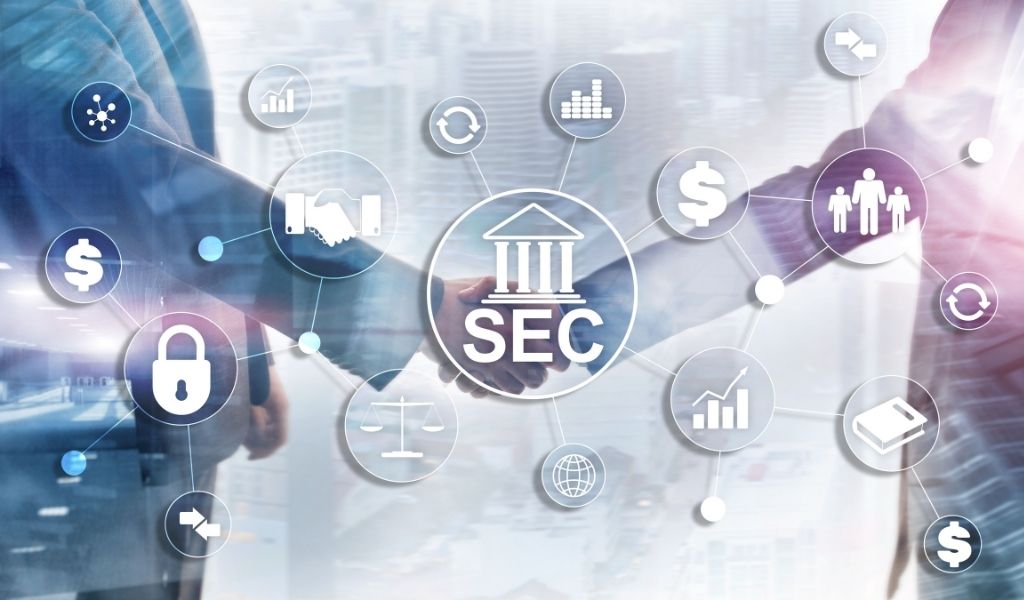Top 6 Strong Impact On AML Regimes (Anti-Money Laundering) Via DeFi
AML stands for Anti-Money Laundering, and it refers to a set of laws, regulations, and procedures designed to prevent and detect illegal activities related to money laundering and terrorist financing. The goal of AML regimes is to ensure that financial systems are not misused for illegal activities by identifying and addressing the risks associated with money laundering and the financing of terrorism.
Key components of AML regimes include:
- Customer Due Diligence (CDD):
- Financial institutions are required to conduct thorough due diligence on their customers to verify their identity and assess the risk they pose for money laundering or other illicit activities. This process involves obtaining information about the customer’s identity, source of funds, and the nature of the business relationship.
- Know Your Customer (KYC):
- KYC procedures are part of the CDD process, requiring financial institutions to have a clear understanding of their customers and the types of transactions they typically engage in. This helps institutions identify unusual or suspicious activities.
- Transaction Monitoring:
- Financial institutions implement systems to monitor and analyze transactions for unusual patterns or red flags that may indicate potential money laundering or terrorist financing. Unusual transactions trigger further investigation.
- Suspicious Activity Reporting (SAR):
- If financial institutions identify transactions or activities that raise suspicion of money laundering or terrorist financing, they are obligated to file SARs with the relevant authorities. SARs provide details about the suspicious activity and assist law enforcement in their investigations.
- Record-Keeping:
- Financial institutions are required to maintain detailed records of customer transactions and due diligence efforts. These records serve as evidence of compliance and can be used for audits or investigations.
- Internal Controls and Compliance Programs:
- AML regulations require financial institutions to establish and maintain effective internal controls and compliance programs. This includes training employees, conducting risk assessments, and regularly updating policies and procedures.
- Regulatory Oversight:
- AML regimes are overseen by regulatory bodies, such as financial intelligence units and central banks. These authorities set guidelines, conduct inspections, and enforce compliance with AML laws and regulations.
- International Cooperation:
- Given the global nature of money laundering and terrorist financing, international cooperation is crucial. Countries often collaborate to share information, align regulations, and coordinate efforts to combat cross-border financial crimes.
- Beneficial Ownership Disclosure:
- AML regulations may require entities to disclose their beneficial owners, ensuring transparency and preventing the use of shell companies for illicit purposes.
AML regimes are implemented at both national and international levels, with various jurisdictions adopting similar principles outlined by international organizations such as the Financial Action Task Force (FATF). Compliance with AML regulations is mandatory for financial institutions, and failure to adhere to these requirements can result in severe penalties, legal consequences, and damage to a financial institution’s reputation.
Also, read- Exploring Alternatives To Blockchain For Decentralized Finance (DeFi)
Top 6 Impact DeFi Has On AML Regimes

The rise of Decentralized Finance (DeFi) presents both opportunities and challenges for traditional Anti-Money Laundering (AML) regimes. In this exploration, we analyze the ways in which DeFi can affect AML efforts and the potential strategies to address emerging risks.
1. Pseudonymity and Privacy Concerns
DeFi platforms often allow users to interact pseudonymously, posing challenges for AML efforts that traditionally rely on identity verification. Enhanced privacy features can attract users seeking financial autonomy but may also raise concerns about illicit activities. AML regimes must adapt to the decentralized and pseudonymous nature of DeFi transactions.
2. Cross-Border Transactions and Jurisdictional Challenges
DeFi operates on blockchain networks, transcending geographical boundaries. Cross-border transactions within DeFi can complicate AML enforcement, as traditional regulatory frameworks struggle to keep pace with the decentralized and global nature of these financial activities. Coordinated international efforts are crucial to address jurisdictional challenges effectively.
3. Smart Contracts and Automated Processes
The use of smart contracts in DeFi platforms introduces automated processes for financial transactions. While this enhances efficiency, it also creates complexities for AML compliance. Traditional AML checks may not seamlessly integrate with decentralized and automated systems, necessitating the development of new tools and methodologies for monitoring and enforcement.
4. Decentralized Exchanges (DEXs) and Liquidity Pools
Decentralized exchanges and liquidity pools within DeFi enable users to trade assets without relying on centralized intermediaries. AML challenges arise as transactions occur directly between users, potentially bypassing traditional AML gatekeepers. Adapting AML measures to monitor decentralized exchanges without compromising user privacy is a key consideration.
5. DeFi Protocols and Yield Farming
Yield farming, a practice within DeFi where users provide liquidity to protocols in exchange for rewards, introduces novel AML challenges. Rapidly changing protocols and yield opportunities may attract illicit actors seeking to launder funds through complex DeFi mechanisms. AML regimes must evolve to identify and address emerging risks associated with DeFi protocols.
6. Regulatory Collaboration and Technological Solutions
Collaboration between regulatory bodies and the DeFi community is essential for developing effective AML frameworks. Regulatory clarity can guide DeFi platforms in implementing AML measures without stifling innovation. Additionally, the development and adoption of blockchain analytics tools can aid in tracking and identifying suspicious activities within decentralized ecosystems.
7. Education and Awareness
Raising awareness among DeFi users about AML regulations and the importance of compliance is crucial. Education initiatives can foster a culture of responsible DeFi usage and encourage platforms to implement robust AML measures voluntarily.

Conclusion
As DeFi continues to reshape the financial landscape, adapting AML regimes to mitigate associated risks is imperative. Striking a balance between fostering innovation and safeguarding against illicit activities requires collaborative efforts from regulatory bodies, DeFi platforms, and the broader cryptocurrency community. The evolution of AML strategies in the era of decentralized finance remains a dynamic and ongoing process.
Stay informed with daily updates from Blockchain Magazine on Google News. Click here to follow us and mark as favorite: [Blockchain Magazine on Google News].
Get Blockchain Insights In Inbox
Stay ahead of the curve with expert analysis and market updates.
latest from tech
Disclaimer: Any post shared by a third-party agency are sponsored and Blockchain Magazine has no views on any such posts. The views and opinions expressed in this post are those of the clients and do not necessarily reflect the official policy or position of Blockchain Magazine. The information provided in this post is for informational purposes only and should not be considered as financial, investment, or professional advice. Blockchain Magazine does not endorse or promote any specific products, services, or companies mentioned in this posts. Readers are encouraged to conduct their own research and consult with a qualified professional before making any financial decisions.

 Bitcoin
Bitcoin  Ethereum
Ethereum  Tether
Tether  XRP
XRP  Solana
Solana  Dogecoin
Dogecoin  USDC
USDC  Lido Staked Ether
Lido Staked Ether  Cardano
Cardano  TRON
TRON  Avalanche
Avalanche  Chainlink
Chainlink  Toncoin
Toncoin  Wrapped stETH
Wrapped stETH  Shiba Inu
Shiba Inu  Wrapped Bitcoin
Wrapped Bitcoin  Sui
Sui  Stellar
Stellar  Polkadot
Polkadot  Hedera
Hedera  WETH
WETH  Hyperliquid
Hyperliquid  Bitcoin Cash
Bitcoin Cash  LEO Token
LEO Token  Uniswap
Uniswap  Litecoin
Litecoin  Pepe
Pepe  Wrapped eETH
Wrapped eETH  NEAR Protocol
NEAR Protocol  Ethena USDe
Ethena USDe  USDS
USDS  Aptos
Aptos  Aave
Aave  Internet Computer
Internet Computer  Cronos
Cronos  POL (ex-MATIC)
POL (ex-MATIC)  Mantle
Mantle  Ethereum Classic
Ethereum Classic  Render
Render  WhiteBIT Coin
WhiteBIT Coin  Monero
Monero  MANTRA
MANTRA  Dai
Dai  Bittensor
Bittensor  Artificial Superintelligence Alliance
Artificial Superintelligence Alliance  Arbitrum
Arbitrum  Ethena
Ethena 
 Money laundering is a concern in various financial systems, including decentralized finance (DeFi). While DeFi platforms aim to provide decentralized and open financial services, they are not immune to the risks associated with money laundering and other illicit activities. Several factors contribute to the potential for money laundering in DeFi:
Money laundering is a concern in various financial systems, including decentralized finance (DeFi). While DeFi platforms aim to provide decentralized and open financial services, they are not immune to the risks associated with money laundering and other illicit activities. Several factors contribute to the potential for money laundering in DeFi:


